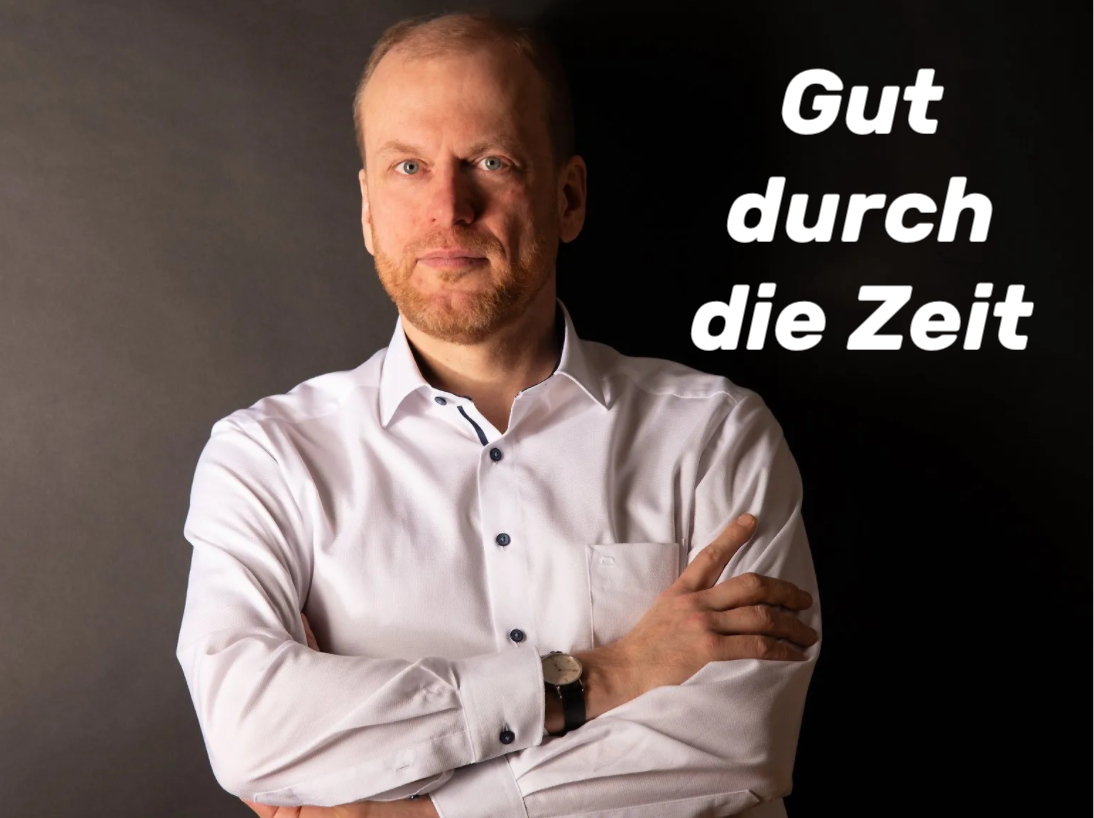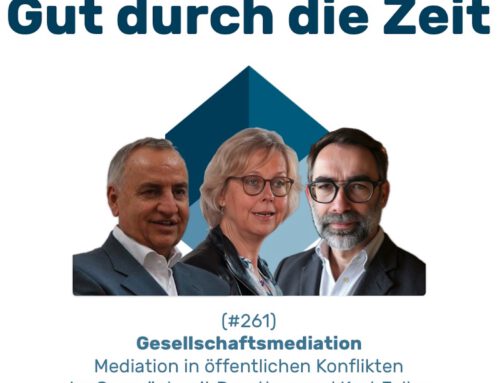INKOVEMA Podcast „Well through time“
#21 – Clarification support and mediation.
Part 2: Clarification support as a mediation style. In conversation with Tilman Metzger
Well through time. The podcast about mediation, conflict coaching and organisational consulting.
Tilman Metzgermediator from the very beginning in Germany and a proven expert on mediation assistance, will speak together with Dr Sascha Weigel on the localisation of the Clarification support in the context of mediation styles. This not only highlights the similarities with the mediation movement, which is primarily rooted in the USA, but also emphasises its specific characteristics and European roots. Finally, the Voluntariness debate within the mediation movement has illustrated the consequences in very practical terms.
Contents:
-
Similarities between clarification support and needs- and interest-orientated mediation (BIO mediation)
- verbalised conflict management procedure
- Third-party proceedings in which the third party has no decision-making authority
- Third party has process sovereignty
- Third party offers a Structured procedure (=requirement of the Mediation Act)
-
Differences between the clarification aid and BIO mediation
- Instead of win-win-situation, the clarification assistance aims to Clarity on (Target idea).
- Instead of relying primarily on US-American concepts and guiding principles, which tend to be future-orientated the clarification assistance is rooted in continental Europeanin particular German-speaking philosophical ideaswho want to get to the bottom of things before turning to new things. This is how emphasising the past and causes Conflict management – always in the service of clarity – to literally help clarify the situation, which is then, strictly speaking, the end of the matter. Even if the parties to the conflict are endeavouring to reach a decision, clarification support is primarily aimed at clarity. This certainly brings clarification assistance into Difference to the Mediation Actthat wants to see a conflict decision. However, this difference should not be overemphasised, as the conclusion of mediation assistance is always accompanied by the question: „…and because things are the way they are and cannot be changed so quickly, how do you want to deal with them now?
Nobody goes to mediation wanting to change the past.
But the understanding of why something went the way it did,
is needed to realign ourselves.
-
- In the Work setting There is a difference in the time structure: while classic mediation (BIO mediation) favours an hour-oriented and iterative approach, clarification support tends to operate on a daily and compact basis in order to enable the clarifying deep drilling.
- Clarification support brings the parties to the conflict into direct contact with each other from the outset and relates your communication contributions to each other (doubling, dialogue) instead of letting them first observe each other in a triangular communication.
-
Clarification assistance and the principle of voluntariness
- Voluntariness in the context of organisations (freedom of employees to participate in mediation)
- Voluntariness as a requirement of the Mediation Act. A legal concept.
The principle of voluntariness is really overrated.
Left:
- Tilman Metzger's website: https://www.tilmanmetzger.de/





Leave A Comment